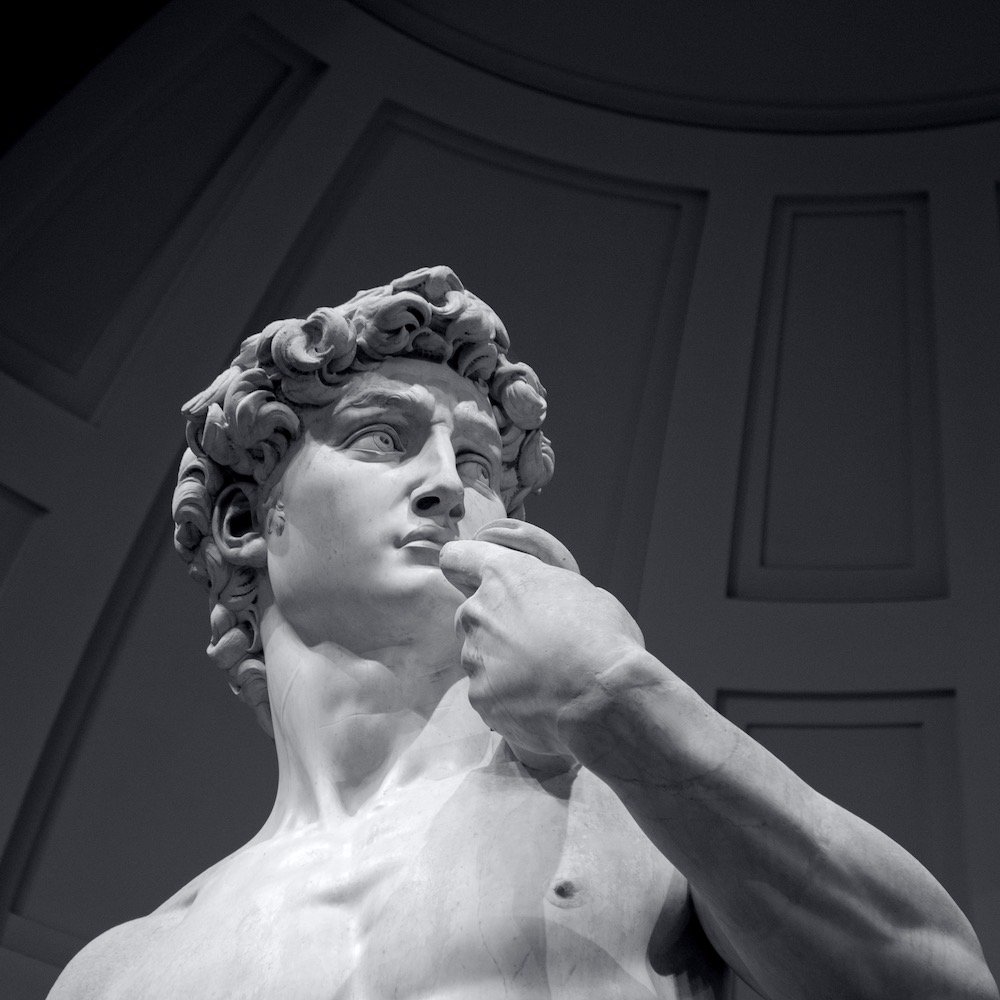In Pursuit of Perfection
The famous 'David' by Michelangelo is often regarded as the pinnacle of physical perfection. What is it about perfection that we humans so strive for?
Perfection is such a thought-provoking, dense concept it seems to run parallel to other abstractions like beauty, intelligence, and truth. For beauty is in the eye of the beholder and so is perfection. Whatever views we hold, one thing is clear: Humans have been chasing the state of perfection forever. So, can humankind reach the highest level of perfection there is and not have a need to strive anymore?
The Human Condition
Coasting. Smooth sailing. Cruising. Humans are wired to love and crave order, peace, and everything positive. And I’ll go one step further to say humans look for anything that will benefit themselves that has a strong impact. When things go well, we become calm and relaxed and this newfound liberation grows self-confidence and esteem.
Humans also long for improvements. When something breaks or goes wrong, we rush to fix it and find the best solution. Just scroll through social media… People are breaking their backs and bank accounts in pursuit of perfection. We’re promised left and right that a little tweak here or a little tuck there will give us the desirable results we want.
This desire to “perfect” doesn’t stop with us. It trickles into all life aspects: relationships, concept of God, education, religion, philosophy of life, finances, career, work productivity, body enhancement, possessions, and more. Perfection can be taken to such an extreme that it can become dysfunctional. This excessive strain or pressure where individuals strive to be flawless by altering themselves and personal circumstances is commonly known as perfectionism.
Perfectionist Mentality
We can all fall prey to perfectionism. Perfectionism is a personality trait driven by linear and rigid thinking. Perfectionists have a great need to be flawless and will easily find fault within themselves and others. They may insist upon their way of doing things because it’s the best and right way. Perfectionists can be very motivated, dependable, and organized. When their expectations or standards aren’t met or approached perfectly, anxiety and criticism ensue.
Here's a short list of perfectionism characteristics. Do any of these ring true for you?:
Exceedingly high, unrealistic expectations (e.g. romantic partner/spouse must complete tasks exactly like you, or they must change)
High work performance for self-worth and value
Fear of failure
Self-criticism
High insecurity
Detail-oriented thinking (e.g. agonizing over small details)
Redo work until it meets your specific level of satisfaction
Reluctant to delegate tasks
Difficulty seeking help
Prefer to complete tasks alone when team effort would be more effective
Now, keep in mind perfectionism falls on a spectrum. Perfectionism becomes problematic when we don’t know how to function, otherwise daily life, work, and relationships suffer. Knowing from a biblical perspective where perfection needs stem from can also help to identify this distortion within our own lives and lead us to find healing.
Pride
The Garden of Eden is a model depiction of a flawless, perfected environment. But even this perfect place wasn’t good enough for Adam and Eve. Our first parents were displeased, and their hearts grew dark and despondent toward God. Satan convinced them they could know godly things by becoming God. And this was a distortion they came to believe when they ate the forbidden fruit. Self-centered autonomy, which is an Adam and Eve complex, was brought on by pride and so was the need for perfection by doing and correcting things our own way.
There’s no place sin doesn’t infiltrate, including human nature. Sin-depraved human nature is responsible for distorted obsessions and enticements such as perfection. Perfection and self-reliance go hand in hand because a prideful heart feels no need to include God. Those that aim for these things instead lean on themselves for security, comfort, and salvation. Good things even when met with good intentions can still be taken to an extreme and produce unhealthy wants, habits, and pursuits.
Uncovering the Perfection Lie
No matter how hard humans try, we cannot manufacture perfection, especially in the highest, purest sense. Why not, you may ask? Perfection equates itself to a mastermind and complete permanence, which humans are neither. The realistic truth is this big craving for perfection is God’s character trait. Pride provides the false hope where we’re tricked into believing we can have or strive for unreachable things we were never meant to have in the first place, such as perfection and being completely satisfied. Sadly, humans will keep on striving until the end of time because we don’t feel we have enough. And this is why perfection is being disguised and falsely advertised everywhere!
There’s always a yearning for something better because our world has evil, disruption, chaos, and injustice. To satisfy our souls, striving to make things smoother and finer seems like the right thing to do. But what if we didn’t need to compensate through perfection and instead focused on a state of being? Being acknowledges and embraces humankind has flaws and limits, which are okay. Discovering and living within a space of grace for the way things are and meant to be is freeing and healing. Perhaps this might provide the sustenance needed to birth acceptance of ourselves, others, and life circumstances.

